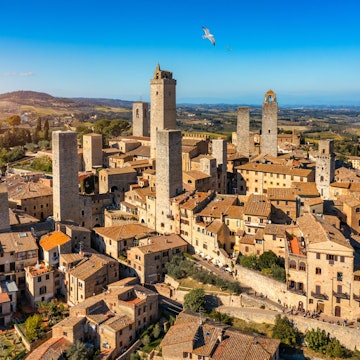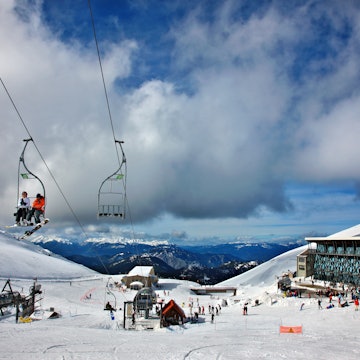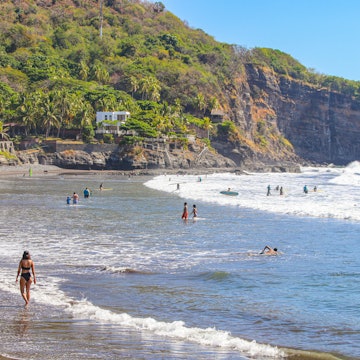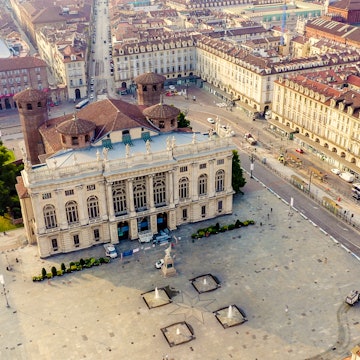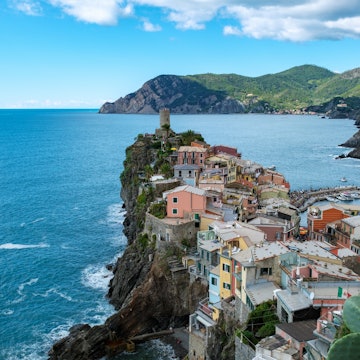

Positano on the Amalfi Coast, Italy. Milena Pigdanowicz-Fidera/Getty Images
Dipped in sunshine, sprinkled with coastal towns and encircled by craggy hills, the dizzyingly glamorous Amalfi Coast and the enticing islands of Capri, Ischia and Procida have been drawing visitors since Roman times. A winning combination of vertiginous scenery, artistic and architectural treasures and fine Italian food ensures that you won’t be alone when you visit the region. In high summer, tour groups can mar the experience, and the roller-coaster roads can be a torment. Avoid the crowds, pick the best places to visit and try local specialties with this planning guide for the Amalfi Coast.
How should I get to the Amalfi Coast?
Most visitors fly into Naples to start their explorations, but taking the train is a more romantic – and eco-friendly – alternative from many European cities. From Napoli Centrale station, hop on the train south to Sorrento to get started.
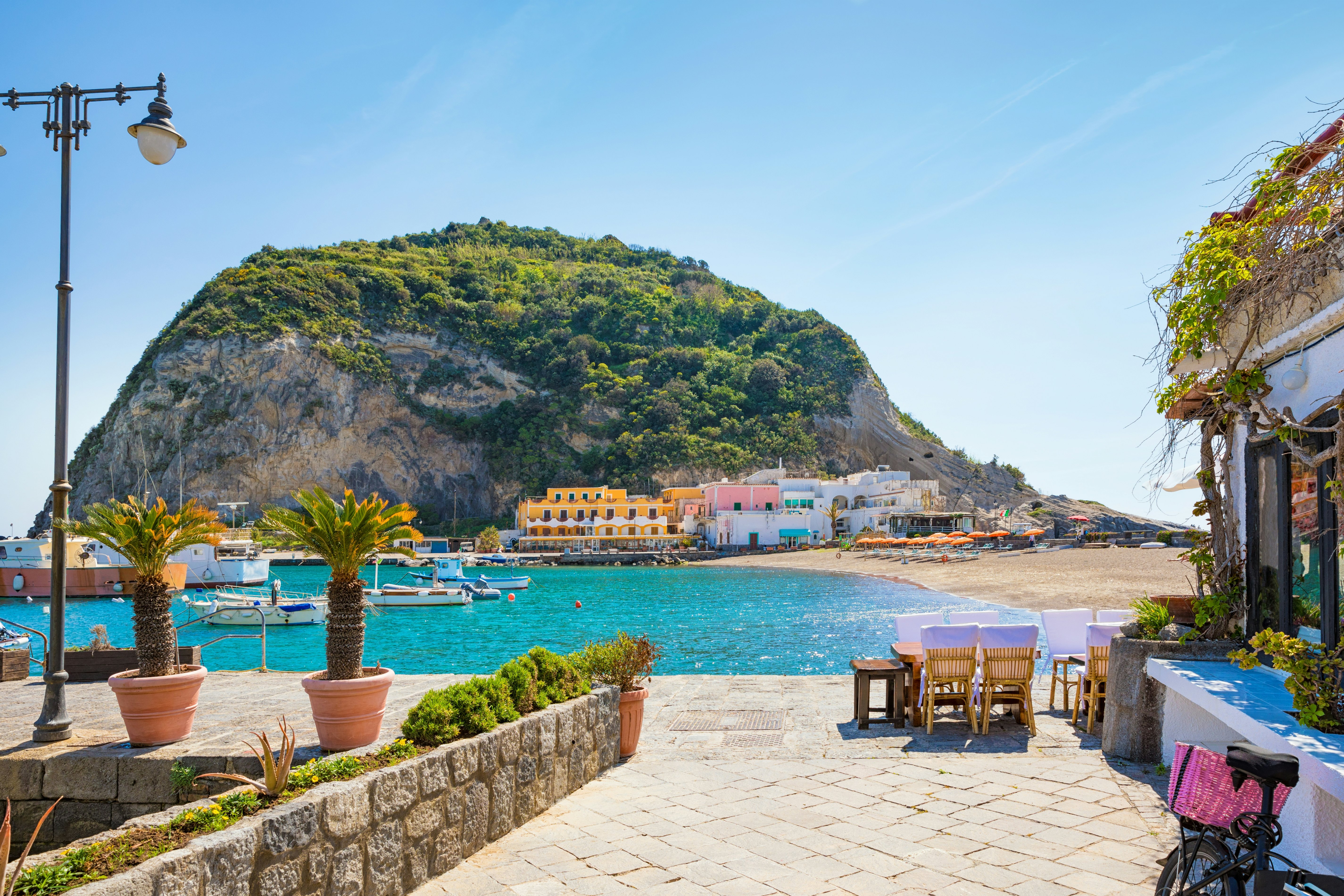
What are the must-sees?
With deep cliffs that cut through the historic center, lemon-wreathed Sorrento was an essential stop on the 19th-century Grand Tour, interest in the town having first been sparked by the poet Byron. The romance continues, and the town’s grand hotels ensure a very comfortable and quintessentially Italian landing in the region.
Positano is the Amalfi Coast’s cover star, with homes tumbling down to the sea in a cascade of sun-bleached peach, pink and terracotta. Its steep streets and steps are lined with wisteria-draped hotels, smart restaurants and fashionable stores.
Leave Capri, beautiful as it is, to the millionaires and the day trippers, and head instead to the green volcanic island of Ischia. Famous for terraced gardens created by composer William Walton’s wife Susana, Ischia also features the impossibly romantic outcrop of the 14th-century Castello Aragonese, as well as thermal hot springs for therapeutic dips.
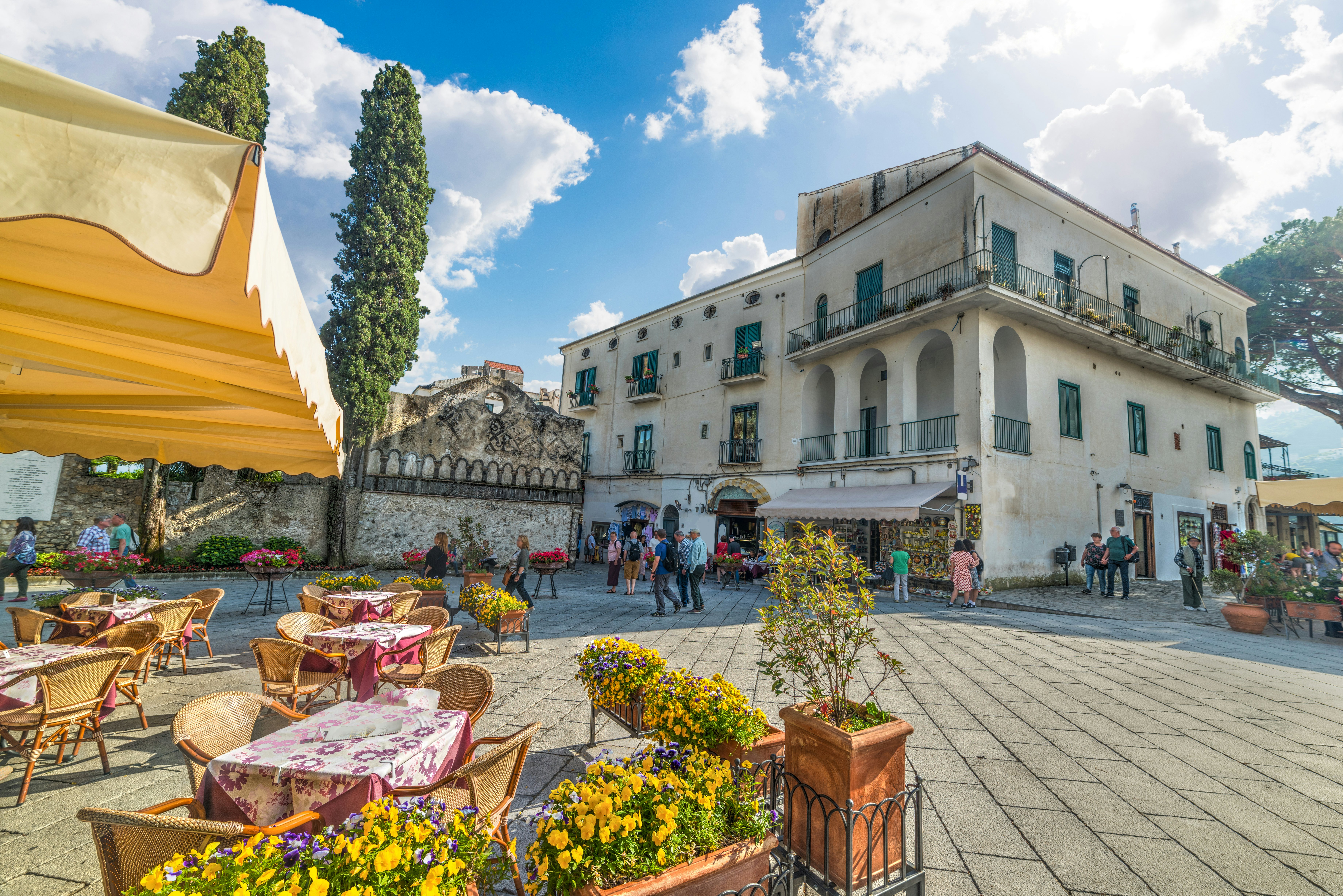
Hilltop garden paradise Ravello is famous for its music festival and incomparable hotels. Founded in the 5th century as a sanctuary from barbarian invaders fresh from sacking Rome, this lofty Amalfi town was built, in contrast to other nearby settlements, at the top of a hill rather than down on the coast. It’s second only to Positano in its style and glamour.
To sample ancient Italy, achingly frozen in time due to the eruption of Vesuvius in 79 CE, visit the mesmerizing ruins of Pompeii. It is a veritable time machine, taking visitors back to the time of emperors and Latin chatter, the city's frescoed homes, businesses and baths still waiting for their occupants to return. Few archaeological sites offer such an intimate connection to the past, and few are as moving.
What is the best time of year to go?
Spring (March to May) is wonderful in this region, as swathes of bright wildflowers dot the hills. Summer (June to August) is peak season for culture and crowds. It’s a great time for cultural events, but high summer sees narrow coastal roads clogged, soaring temperatures and the occasional frayed temper. June generally delivers summer heat without the August crowds and traffic. It’s best to avoid July and August, which is the time that many Italians take their annual vacations.
You can find decent deals on accommodations in fall (September to November) after school starts and many people are back to work. It’s a great time for hiking and swimming, as the weather and water remain pleasantly temperate. Bountiful seasonal produce includes mushrooms, black truffles and chestnuts.
Things get sleepy come winter (December to February), and many hotels, restaurants and attractions are firmly closed from November until Easter. Boat and ferry services are severely limited.
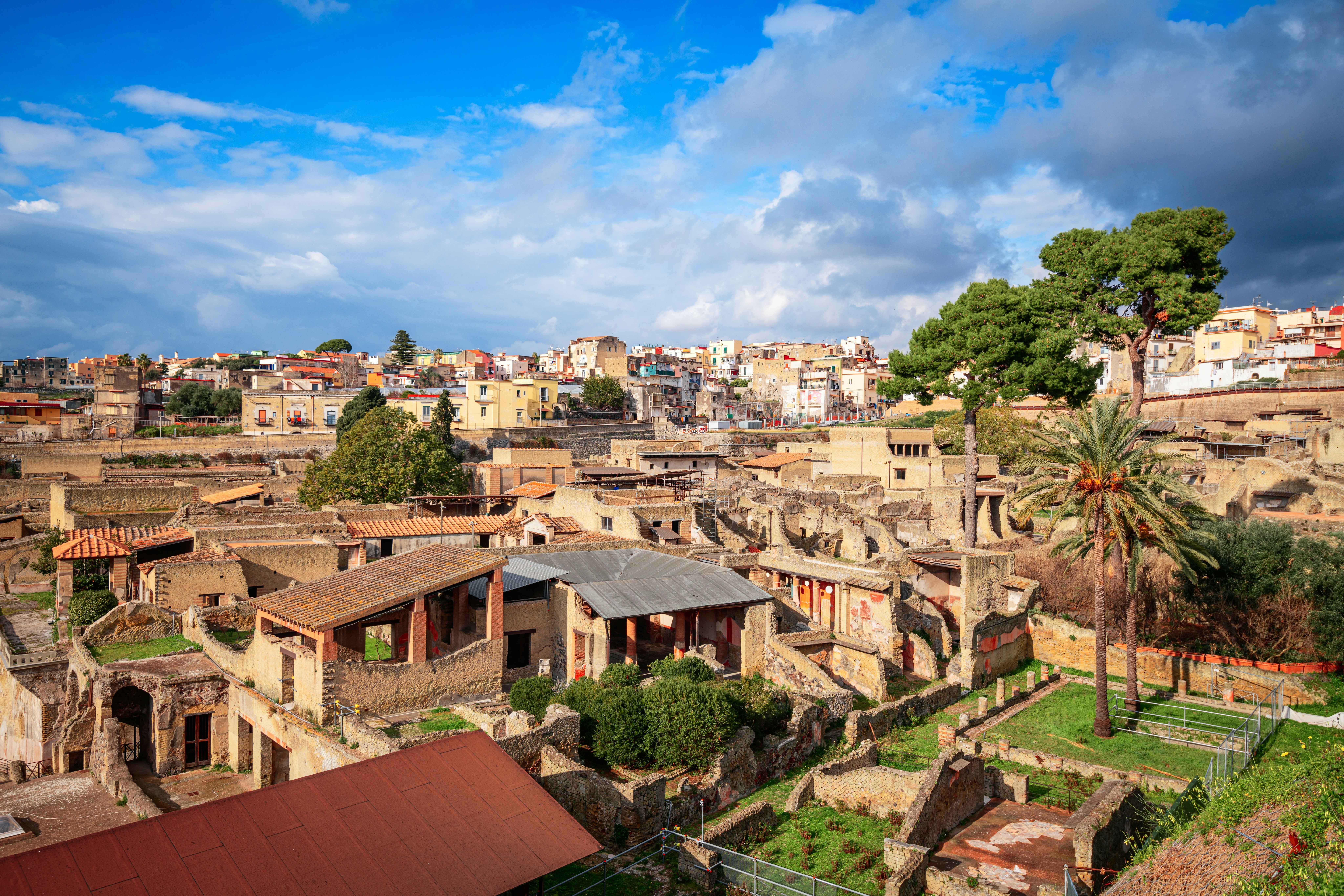
How should I get around?
Driving through this region can be a hectic experience and is best avoided – unless you have a penchant for zigzag bends, cavalier passing and buses swinging at you from the opposite direction. The public transportation is good, whether you zip around by boat or hop on a bus and let someone else do the driving.
A network of ferries connects the coastal towns along the Amalfi Coast with Salerno, Sorrento and Capri. Connections to Naples, Ischia and Procida can be made via Sorrento or Capri. The Circumvesuviana train line links Naples with Herculaneum, Pompeii and Sorrento – it’s scruffy but fairly efficient and extremely cheap. As an alternative, take the tourist-oriented Campania Express train. This is a bit more expensive and runs less frequently but, as it stops only in Naples, Herculaneum, Pompeii and Sorrento, it makes for a much more pleasant journey.
Nipping up and down the coast, circling Ischia and linking Capri’s towns, buses are a bargain – although some travelers might find the local driving style and crowds a little hard to stomach.
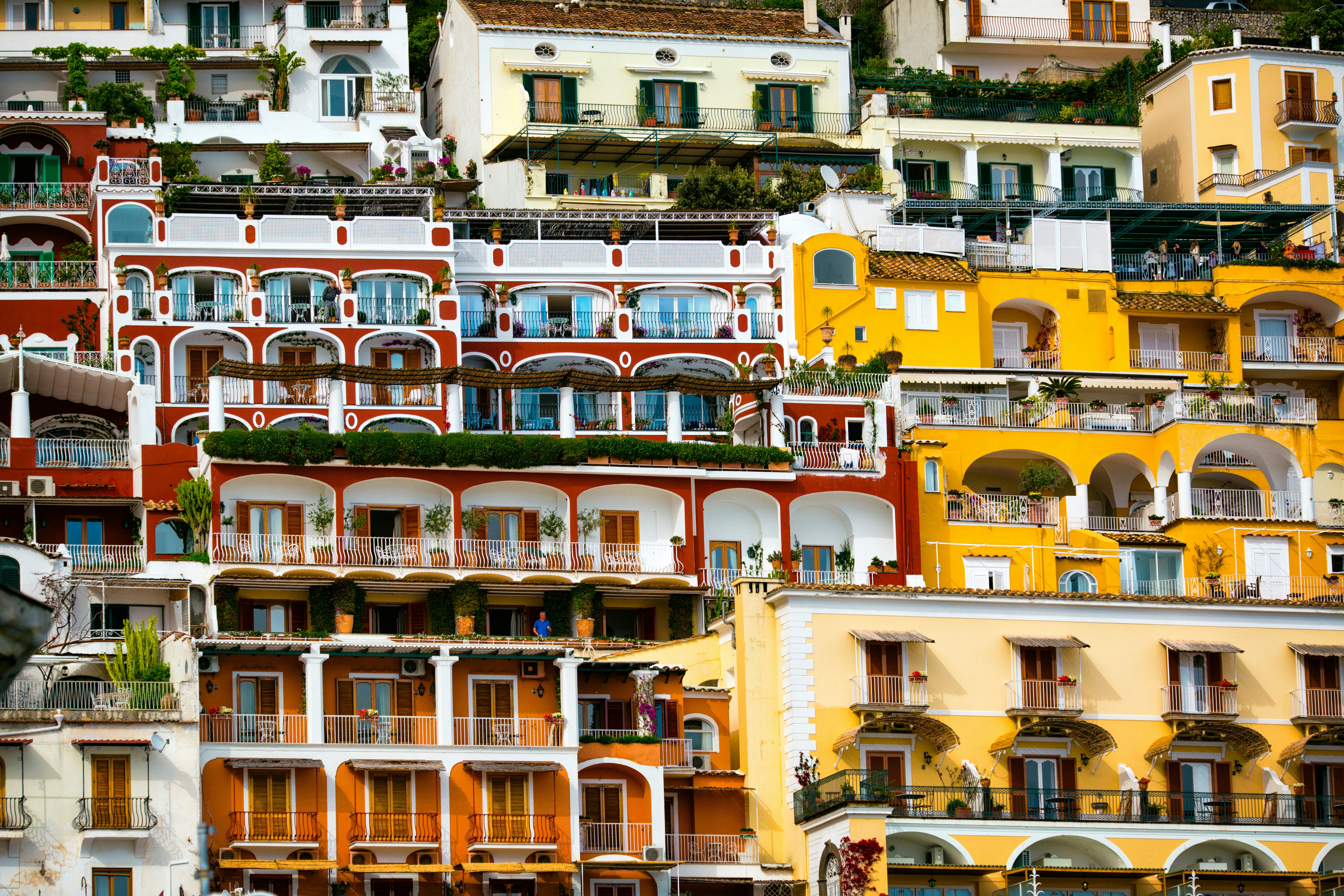
Where should I stay?
The region of Campania has been lavishing attention on its visitors for centuries. Competition is fierce, and standards of service are high. Whether you’re honeymooning or backpacking, you’re likely to find a warm welcome, enhanced by a room decked out with local tiles and maybe even a lush garden. At any time of year, it’s best to book ahead; bear in mind that demand for rooms is sky high in the summer.
The region does high-end tourism like nowhere else. Elegant accommodation options include the venerable Grand Hotel Excelsior Vittoria in Sorrento, Capri’s opulent Grand Hotel Quisisana and pine-encircled spa hotel Il Moresco on Ischia. Midrange B&Bs also excel: we’ve happily laid our heads at Casa Giovanni da Procida, prettily perched La Fenice in Positano and hillside Ercole di Amalfi, just outside Amalfi town. There are some great hostel and camping options too: try Positano’s Hostel Brikette or beachside Camping Mirage on Ischia. Beata Solitudo in Agerola combines historic hostel rooms with camping.
What should I pack for the trip?
Think Talented Mr Ripley, without the murders. The Amalfi Coast is Italy at its most glam, so as well as a wide sunhat and hiking shoes for outdoorsy activities, make sure you are passeggiata-ready with clothes to pose in. Sensible footwear is a must though, as the towns are navigated via steep stone steps.

What's the best walking trail on the Amalfi Coast?
Walk the legendary Path of the Gods (Sentiero degli Dei), which links the villages of Agerola and Nocelle. You need strong legs and a good head for heights for this four-hour hike, which affords sweeping views of Capri and the sea.
What are the best things to eat?
You’ll find spaghetti alle vongole (with fresh clams) on practically every menu in the region. Another seafood special is tuna, best eaten in the town of Cetara, which hosts an annual tuna festival, while colatura pasta dishes are doused with liquid filtered from salted anchovies. Amalfi’s scialatielli pasta is a chunkier flat version of spaghetti, often served with mixed seafood. Capri gave the world insalata Caprese: a colorful salute to the Italian flag comprising mozzarella, tomatoes and basil with olive oil. Ischia’s speciality is rabbit stew, and sweet limoncello is drunk all over this lemon-growing region. The Amalfi Coast is within dough-throwing distance of Naples, and great pizza places are ubiquitous.
Where should I swim?
From Ischia’s thermal beaches to Positano’s Spiaggia di Fornillo, the Amalfi Coast is perfect for swimmers. Just be careful how deep you dip your toes into the hot spring at Baia di Sorgeto – the water is thermally heated.








